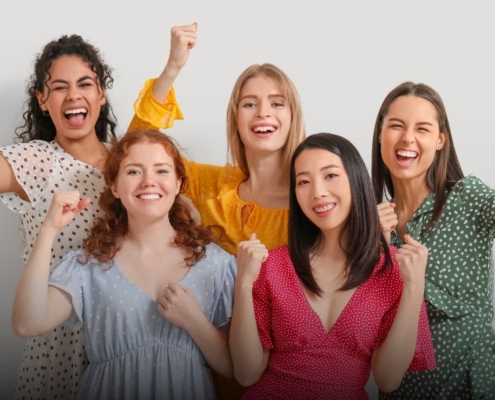No country can ever truly flourish if it stifles the potential of its women and deprives itself of the contributions of half of its citizens.
–Michelle Obama
The History of Women’s Day
On March 8th, 1909, women from around the world gathered in Seneca Falls, New York to celebrate their newfound rights. They had come together to form the National American Woman Suffrage Association (NAWSA) and call for an end to gender discrimination in all areas of life. In 1917, President Woodrow Wilson signed the Nineteenth Amendment, granting women the right to vote.
This amendment was a huge victory for women and helped pave the way for further progress towards equality for women. On International Women’s Day (March 8th), we commemorate this accomplishment and recommit ourselves to ensuring that all women have the same opportunities as men.
All human beings are born free
This year, 2023, marks the 75th anniversary of the Universal Declaration of Human Rights, which states that “all human beings are born free and equal in dignity and rights”. Not only today, but every day, we stand by all women to give an ever-greater boost to women’s rights around the world.
We want women to be able to meet the goals they set for themselves without obstacles. The worldwide increase in oppression against them and attacks on the human rights of women and girls is alarming. We stand with women in Iran, whose freedoms are systematically limited, and in Afghanistan, where the Taliban are and children in Ukraine as a weapon of war trying to erase the presence of women and girls from public space, as well as anywhere in the world where fundamental rights and freedoms of women are threatened or denied.
We are also extremely concerned by reports that the Russian military is using sexual violence against women and children in Ukraine as a weapon of war. Such actions constitute war crimes and those responsible must be brought to justice.
Penalties for violence against women
To strengthen global accountability, the EU has just called for a package of sanctions against accountability, against perpetrators of sexual and gender-based violence.
There is also good news. The EU has taken key decisions to ensure that women in the EU have the same opportunities as men: for example, with new EU rules on gender balance on company boards or pay transparency.
We also intend to establish EU standards to combat violence against women and domestic violence. More work needs to be done.
Real equal rights are still far away and will only be achieved when we all do our best to promote and protect it, in Europe and throughout the world”.
“You don’t have to play masculine to be a strong woman.”
-Mary E. Winstead

















